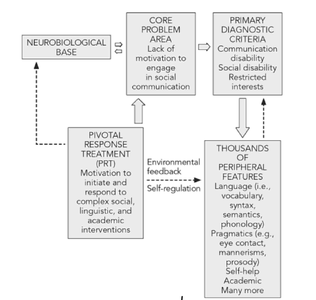Dahlia
New Member
Hello. My youngest child, who is 5, has an atypical neurological development. We don’t know the cause yet, just that he has a speech delay. The delay is both expressive and receptive and echolalia is very common in his speech (both delayed and immediate). He also has some other quirky behavior and some motor issues. He had an autism test last year and they said he wasn’t autistic. We went to a neurologist, trying to understand why he has a delay and how to help, and the neurologist is convinced it’s is autism and wants another evaluation done.
So here is the part that I need help with: a lot of the outward behaviors he has could give you an autism diagnosis based on the definition in the DSM-5 but I don’t think that he is autistic. The reason I think this is that all the things I have read make it seem like the communication delays are supposed to be caused by decreased interest in engaging social interaction. That part doesn’t fit. My son has a speech delay, but that isn’t the reason - his desire to interact far exceeds his ability to interact. Lots of eye contact and non-verbal communication. Lots of the same verbal interaction, seemingly bc he wants to interact and this is how he can do it. He also is very mellow, calm, content and easy going. So my question is which one matters? If he technically meets the definition but not the model of autism, is he autistic? Does that model fit your experience of being autistic? Are there people out there who are like my son and autistic?
(Note: the attachment is from the preface of “The PRT pocket guide”)
So here is the part that I need help with: a lot of the outward behaviors he has could give you an autism diagnosis based on the definition in the DSM-5 but I don’t think that he is autistic. The reason I think this is that all the things I have read make it seem like the communication delays are supposed to be caused by decreased interest in engaging social interaction. That part doesn’t fit. My son has a speech delay, but that isn’t the reason - his desire to interact far exceeds his ability to interact. Lots of eye contact and non-verbal communication. Lots of the same verbal interaction, seemingly bc he wants to interact and this is how he can do it. He also is very mellow, calm, content and easy going. So my question is which one matters? If he technically meets the definition but not the model of autism, is he autistic? Does that model fit your experience of being autistic? Are there people out there who are like my son and autistic?
(Note: the attachment is from the preface of “The PRT pocket guide”)
